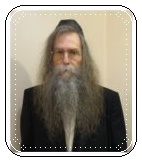[last update]
Tag Archives: Conference of European Rabbis (CER)
International Opposition to ‘New’ Proposals for Conference-Memorial Complex, with Seating Capacity for Thousands — in the Middle of the Old Vilna Jewish Cemetery
Lithuanian Academy of Sciences Offers Premises for 14 Jan. Rally Set on Permanent Desecration of the Old Vilna Jewish Cemetery
OPINION | OLD VILNA JEWISH CEMETERY AT PIRAMÓNT: 2015-2025 | EARLIER OPPOSITION TO CONVENTION CENTER | 2023-2024 “WORKING GROUP” ON VILNA CEMETERY | LIST OF MEMBERS | MOUNTING OPPOSITION TO THE NEW “MUSEUM PROJECT” | THE USCPAHA (UNITED STATES COMMISSION FOR THE PRESERVATION OF AMERICA’S HERITAGE ABROAD) | THE CPJCE (COMMITTEE FOR THE PRESERVATION OF JEWISH CEMETERIES IN EUROPE) | THE AJC (AMERICAN JEWISH COMMITTEE) | THE CER (CONFERENCE OF EUROPEAN RABBIS) | THE GWF (GOOD WILL FOUNDATION) | CEMETERIES & MASS GRAVES | HUMAN RIGHTS | CHRISTIAN-JEWISH RELATIONS
◊

Top: The “convention center in the Jewish cemetery” project slated for approval by the Lithuanian Academy of Sciences on Jan. 14th includes an annex (right of image) built right on top of Jewish graves going back half a millennium. Bottom: Alternative narrative of this choice of venue for a new national convention center.
Rabbi S. J. Feffer, Scholar (and Descendant) of Gaon of Vilna, Condemns Project to Defile Old Vilna Jewish Cemetery — Cites Ensnaring of Conference of European Rabbis (CER) & Bnei Brak’s Beth Din
OPINION | 2023-2024 “WORKING GROUP” ON VILNA CEMETERY | WHO ARE THE MEMBERS? | OLD VILNA JEWISH CEMETERY AT PIRAMÓNT | OPPOSITION TO CONVENTION CENTER | THE CPJCE | THE USCPAHA | THE CER (CONFERENCE OF EUROPEAN RABBIS) | THE GWF (GOOD WILL FOUNDATION) | CEMETERIES & MASS GRAVES | HUMAN RIGHTS
◊
◊
VILNIUS—Rabbi S. J. Feffer, a part-of-the-year resident in Vilnius for some three decades, is best known locally for his free-of-charge (and no-tickets-needed) Passover seders and other holidays, always open to Vilneans of all backgrounds. His events are considered to be forums of intercommunity friendship and harmony, characterized by authentic Litvak Jewish Orthodox practice with equally warm welcome to folks of any and all persuasions. He is also known as an independent voice for Jewish heritage preservation, and against corruption in high places. Internationally, the rabbi, a descendant of close family of the Gaon of Vilna, is best known as part of the editing team for dozens of published volumes containing the works of the Gaon (Elijah of Vilna, 1720-1797).
